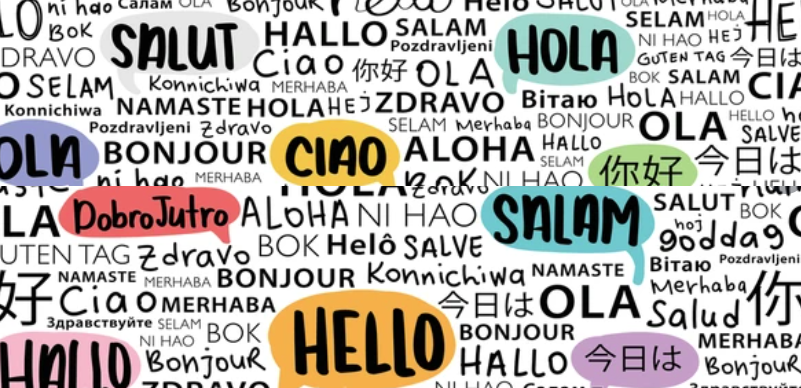
Of all the isms, the ones I proudly embrace are being able to speak a couple of languages and multiculturalism.
The two primary theories of multiculturalism integrated into a single society are commonly used to describe them as the “melting pot” and the “salad bowl”.
Studying hundreds of older patients, researchers in Germany found that those who reported using a couple of languages daily from a young age scored higher on tests of learning, memory, language, and self-control than patients who spoke only one language.
Bilingualism may even stave off dementia, according to scientific studies. People who spoke two languages daily in their youth tended to score higher on memory tests later in life, the researchers found. https://www.nytimes.com/2023/04/28/health/bilingualism-memory-dementia…
Being able to speak multiple languages also allows us to make new friends and raises awareness of language as a force for peace, unity, dialogue, and enhanced cooperation among all people on the planet.
There will always be an endless list of chores to complete and work to do, and a culture of relentless productivity tells us to get to it right away and feel guilty about wasting time.
But the truth is a life spent dutifully working on too many projects. And “wasted” time is, in fact, highly fulfilling and necessary.
Therefore, learn how to speak another language, or just relax and read a book, or 22.
Lastly, I have abandoned some projects and instead post a blog and ended up missing valuable moments with my children and grandkids.
5 quickest and easiest languages even adults can learn on their
https://www.studyinternational.com/news/easiest-languages-to-learn/
Italian is sexy, German is rough—but how about Spanish or Chinese?
PNAS https://www.pnas.org/ collected 2,125 recordings of 228 languages from 43 language families, including 5 to 11 speakers of each language to control for personal vocal attractiveness, and asked 820 native speakers of English, Chinese, or Semitic languages to indicate how much they liked these languages. We found a strong preference for languages perceived as familiar, even when they were misidentified, a variety of cultural-geographical biases, and a preference for breathy female voices.
The scores by English, Chinese, and Semitic speakers were weakly correlated, indicating some cross-cultural concordance in phonesthetic judgments, but overall there was little consensus among raters about which languages sounded more beautiful, and average scores per language remained within ±2% after accounting for confounds related to familiarity and voice quality of individual speakers. None of the tested phonetic features—the presence of specific phonemic classes, the overall size of phonetic repertoire, its type, and similarity to the listener’s first language—were robust predictors of pleasantness ratings, apart from a possible slight preference for nontonal languages. While population-level phonesthetic preferences may exist, their contribution to perceptual judgments of short speech recordings appears to be minor compared to purely personal preferences, the speaker’s voice quality, and perceived resemblance to other languages culturally branded as beautiful or ugly.
Meanwhile, I say no to
Racism – Discrimination against people of color because of their race.Colorism – Within-group and between-group discrimination against people of color with darker skin tones, and giving preference to people of color with lighter skin tones.
Tokenism – The practice of using people of color in a symbolic gesture to avoid criticism or being called racist.
Anti-Semitism – Discrimination against Jewish people or people perceived to be Jewish because of their affiliation to Judaism.
Sexism – Discrimination against women and girls because of their sex.
Ableism – Discrimination against people with impaired or limited abilities because of their physical abilities.
Ageism – Discrimination against older populations because of their age and perceived competence or capabilities.
Classism – Discrimination against people of the lower class because of their economic status.
Elitism – Discrimination against people believed to be “less than” in terms of education, money, job status/position, etc.
Heterosexism – Discrimination against non-heterosexual people because of their sexuality.
234 different isms are representing a philosophical, political or moral doctrine or belief system. In selecting terms for the list, we avoided any word which applies ism to a personal name, so that Marxism doesn't count although it is otherwise an ideal candidate for the list. Excluded are isms that do not refer to a specific belief system, such as impressionism or alcoholism. Despite these omissions, enough remains to leave an ism in every pot, including beliefs about proper government, God, and the nature of existence itself. https://www.phrontistery.info/isms.html